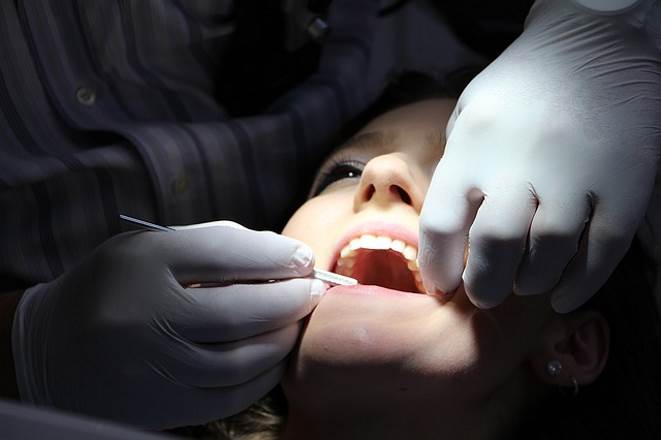Everything Pensioners Need To Know About Dental Implants In Australia: Prices And Treatment Options
Dental implants have become an increasingly viable solution for pensioners experiencing tooth loss, offering a permanent alternative to traditional dentures. For Australian seniors navigating the complex landscape of dental care options, understanding the treatment possibilities, associated costs, and coverage options is essential for making informed decisions about their oral health. This comprehensive guide addresses the key considerations specifically relevant to pensioners considering dental implant treatment in Australia.

Understanding Dental Implants In Australia
Dental implants in Australia follow strict therapeutic goods administration regulations, ensuring high safety and quality standards. The procedure involves surgically placing a titanium post into the jawbone, which acts as an artificial tooth root. Once the implant integrates with the bone through a process called osseointegration, a crown is attached to replace the missing tooth. Australian dental professionals must meet rigorous qualifications to perform implant procedures, with many specialists completing additional training in oral surgery or prosthodontics. The success rates for dental implants in Australia are comparable to international standards, typically ranging from 95-98% when performed by qualified practitioners.
Dental Implants Treatment Options In Australia Available to Pensioners
Pensioners have several treatment pathways available when considering dental implant procedures. Single tooth implants represent the most straightforward option, replacing individual missing teeth with standalone implants. Multiple tooth replacement can be achieved through implant-supported bridges, which use fewer implants to support several crowns. Full mouth rehabilitation options include implant-supported dentures or all-on-four procedures, which can replace entire arches using strategic implant placement. Treatment planning typically involves comprehensive assessments including 3D imaging, bone density evaluation, and medical history review to determine the most suitable approach for each individual’s circumstances and health status.
Dental Implants Prices and Financial Considerations
Understanding the financial investment required for dental implant treatment is crucial for pensioners working within fixed budgets. Pricing structures vary significantly across providers and treatment complexity levels. Single tooth implants typically range from $3,000 to $6,500, while full mouth rehabilitations can cost between $25,000 and $50,000. These variations depend on factors including geographic location, practitioner experience, implant brand selection, and additional procedures such as bone grafting or sinus lifts that may be required.
| Treatment Type | Estimated Price Range | Additional Considerations |
|---|---|---|
| Single Tooth Implant | $3,000 - $6,500 | Includes implant, abutment, and crown |
| Implant Bridge (3-4 teeth) | $8,000 - $15,000 | May require 2-3 implants for support |
| All-on-Four (per arch) | $20,000 - $30,000 | Full arch replacement option |
| Complete Full Mouth | $40,000 - $60,000 | Both upper and lower arches |
Prices, rates, or cost estimates mentioned in this article are based on the latest available information but may change over time. Independent research is advised before making financial decisions.
Dental Implants For Pensioners: Coverage and Payment Options
Pensioners should explore various financial assistance options to make dental implant treatment more accessible. Medicare provides limited coverage for dental procedures, typically only covering emergency treatments in hospital settings. The Child Dental Benefits Schedule does not apply to pensioners, but some may qualify for public dental services through state and territory programs, though waiting lists can be extensive. Private health insurance policies with extras cover may contribute to implant costs, but annual limits and waiting periods often apply. Some dental practices offer payment plans or financing options specifically designed for pensioners, allowing treatment costs to be spread over extended periods.
Health Considerations and Candidacy Assessment
Pensioners considering dental implants must undergo thorough health evaluations to determine treatment suitability. Age alone does not disqualify candidates, but certain medical conditions common among seniors require careful consideration. Uncontrolled diabetes, active periodontal disease, heavy smoking, and certain medications like bisphosphonates can affect healing and implant success rates. Adequate bone density and volume are essential for implant stability, and some pensioners may require preliminary procedures such as bone grafting or sinus lifts. Overall health status, ability to undergo surgical procedures, and commitment to post-treatment care are all factors that dental professionals assess during the consultation process.
Long-term Benefits and Maintenance Requirements
Dental implants offer significant long-term advantages for pensioners, particularly in maintaining facial structure, preventing further bone loss, and providing stable chewing function. Unlike removable dentures, implants do not require adhesives or daily removal for cleaning. Maintenance involves regular brushing, flossing with specialized tools, and professional cleanings similar to natural tooth care. With proper maintenance, dental implants can last decades, making them a worthwhile investment despite higher initial costs. The improved quality of life, including enhanced nutrition from better chewing ability and increased confidence in social situations, often justifies the investment for many pensioners.
Understanding the comprehensive landscape of dental implant options, costs, and considerations enables pensioners to make informed decisions about their oral health care. While the initial investment may seem substantial, the long-term benefits of improved function, aesthetics, and overall quality of life make dental implants a viable solution for many Australian seniors. Consulting with qualified dental professionals and exploring available financial assistance options can help make this transformative treatment more accessible.
This article is for informational purposes only and should not be considered medical advice. Please consult a qualified healthcare professional for personalized guidance and treatment.




